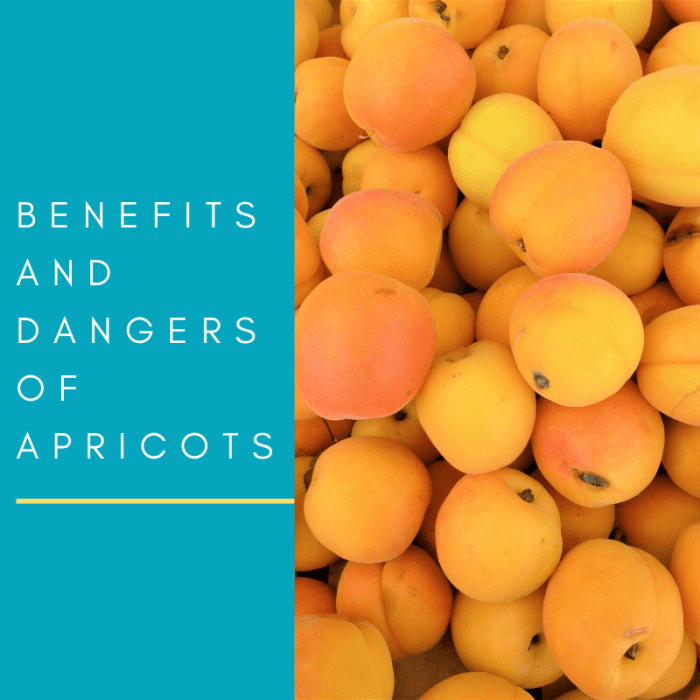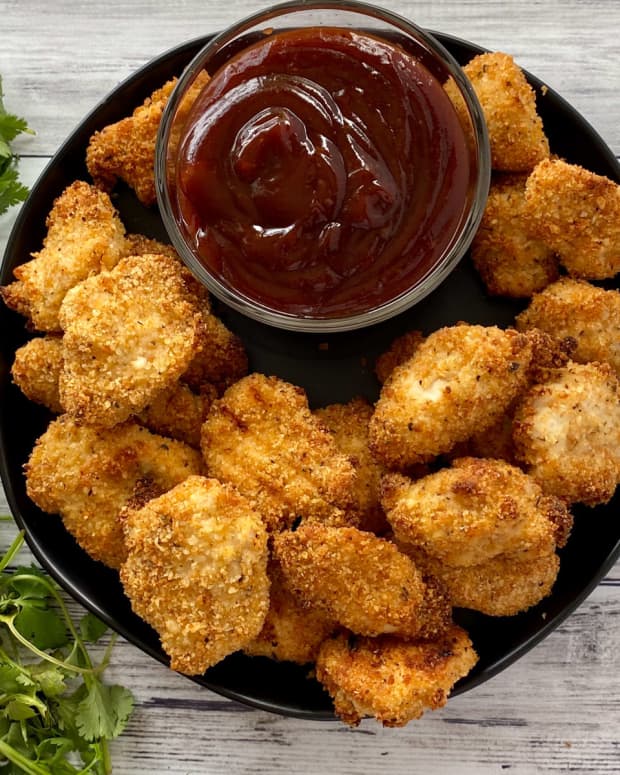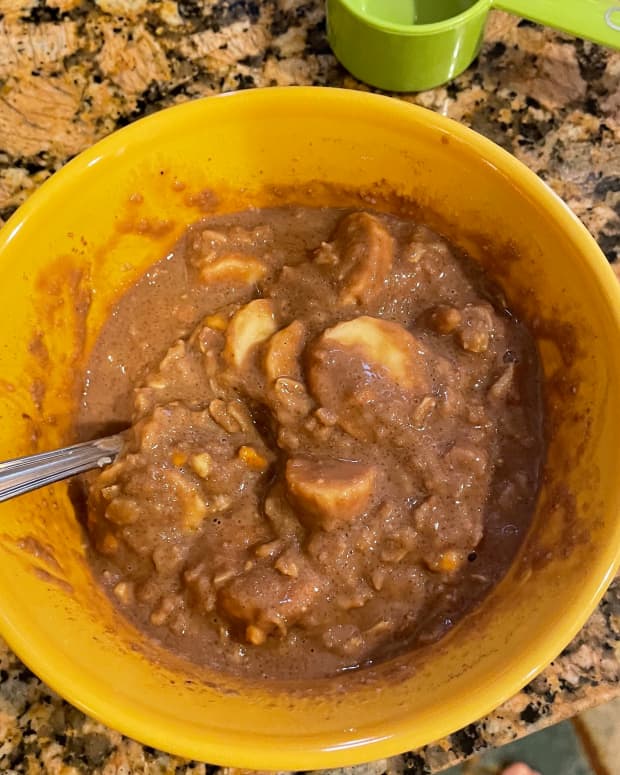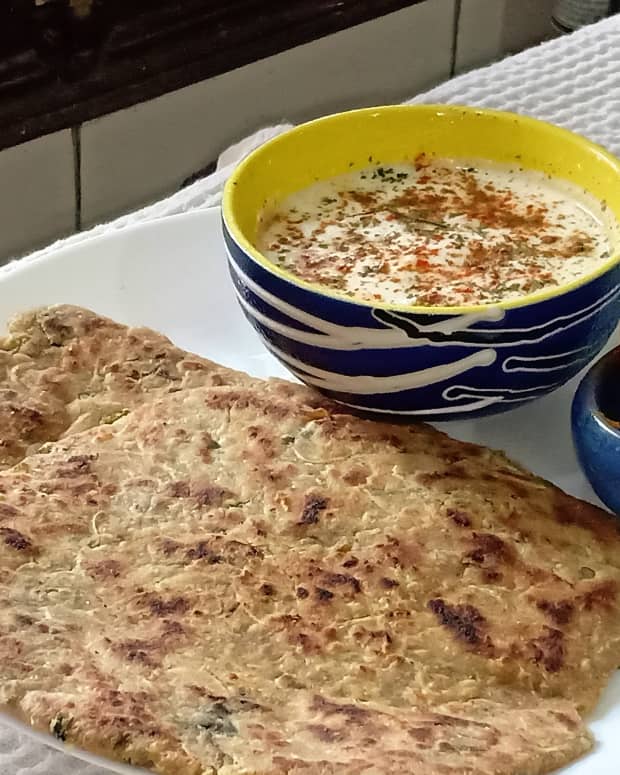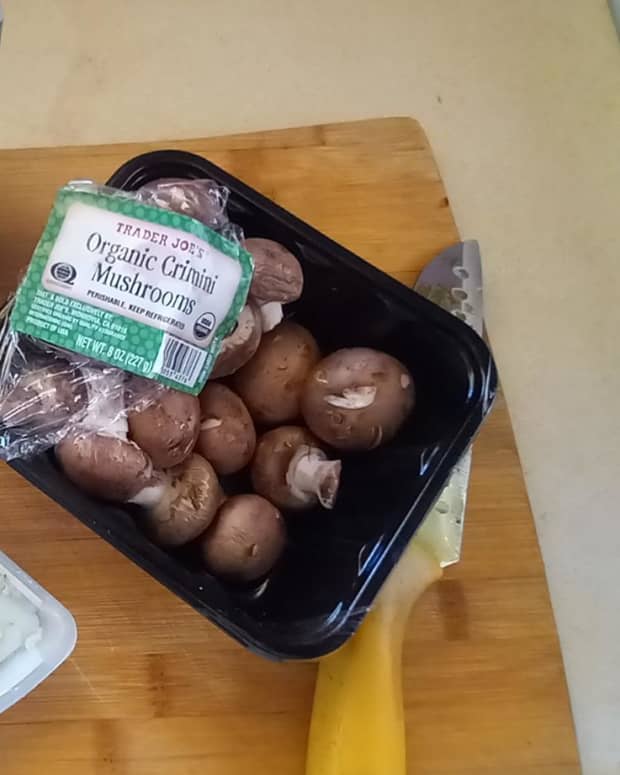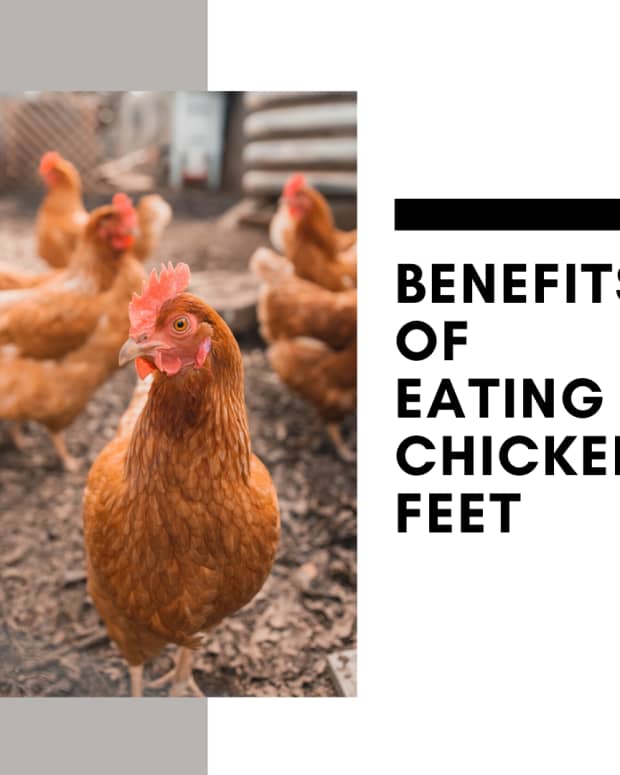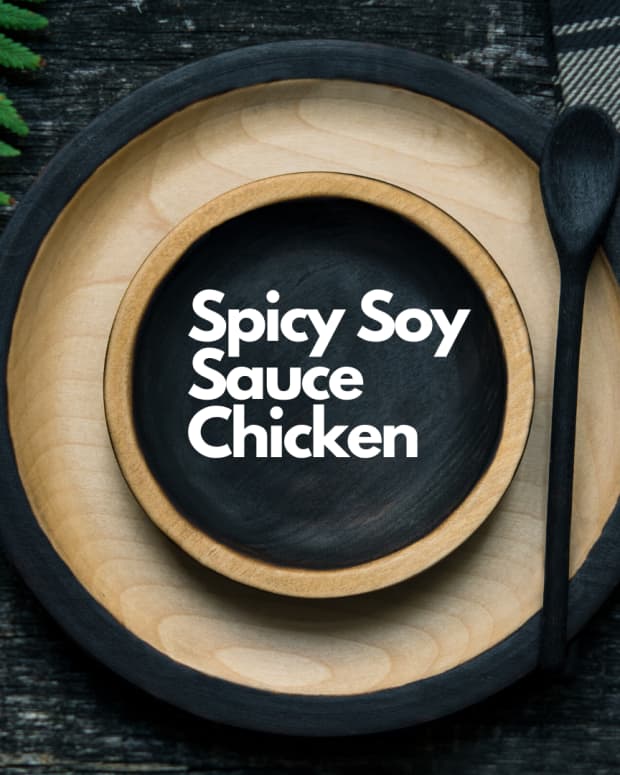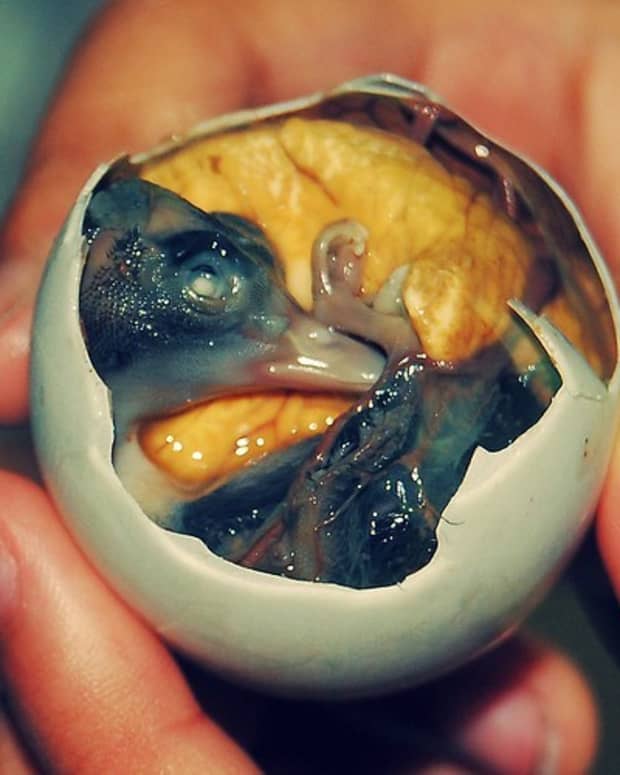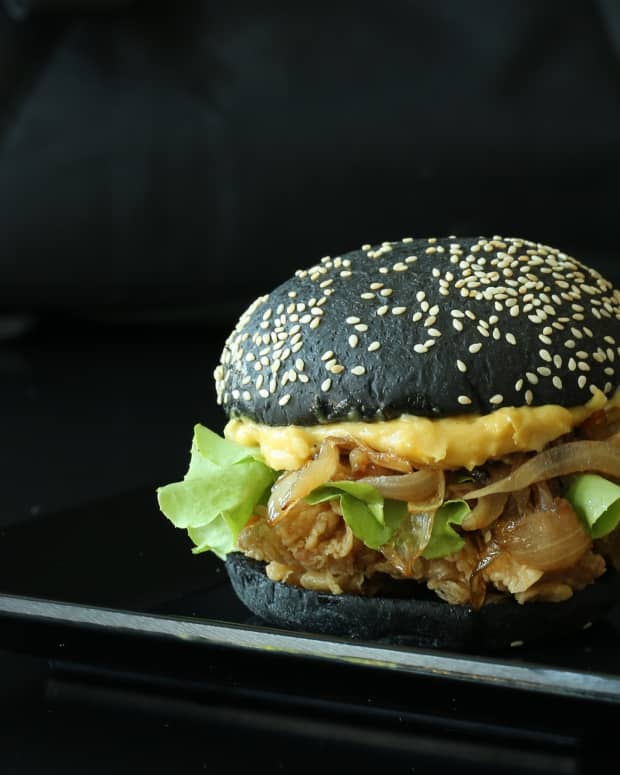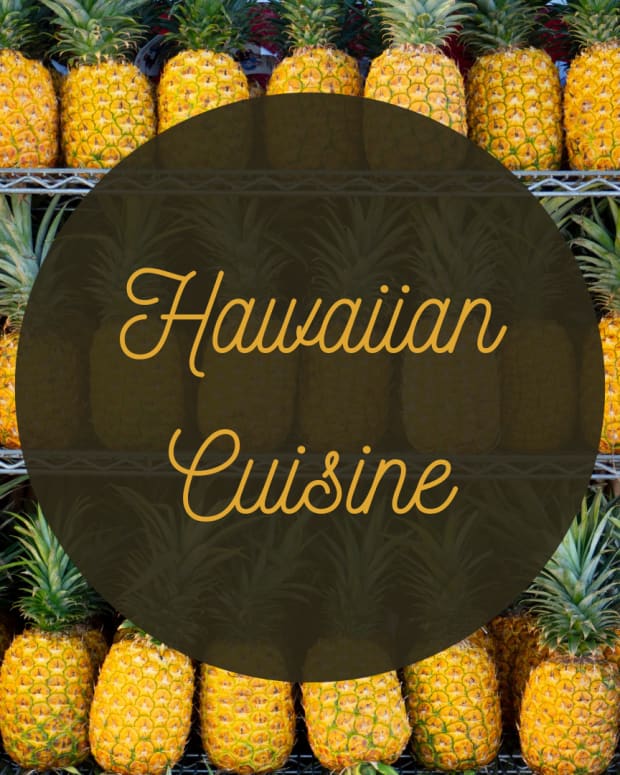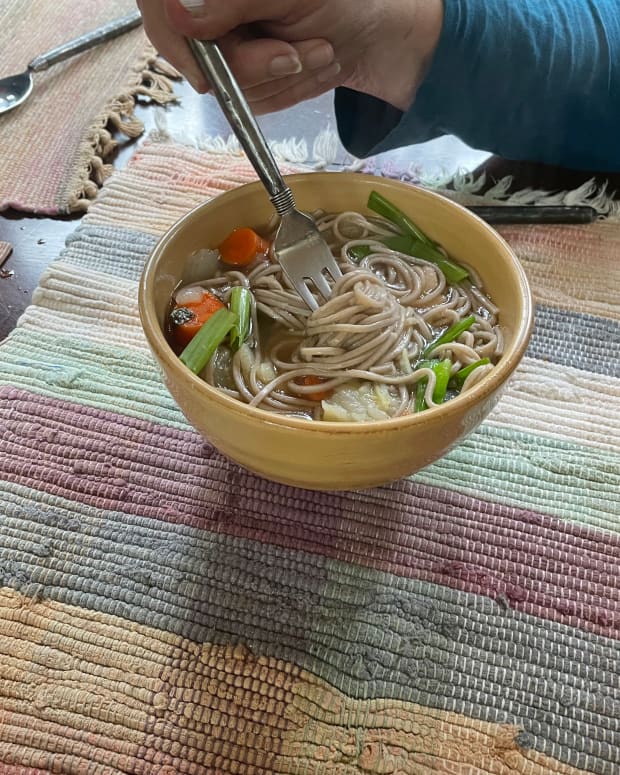Apricot Fruits and Kernels: Potential Benefits and Dangers
Linda Crampton is a teacher with an honors degree in biology. She enjoys exploring nutrition as well as the culture and history of food.
Fruits and Seeds of the Apricot Tree
Apricots are sweet, delicious, and nutritious. They are rich in important vitamins and minerals, a good source of fibre, and a versatile recipe ingredient. Their flesh is a great addition to the diet. Their seed or kernel may not be. The kernel is located inside the pit (or stone) of the fruit. It contains a chemical called amygdalin, which our body converts into toxic cyanide.
The body can detoxify small quantities of cyanide. Kernels of the sour or bitter apricot contain a high level of amygdalin, however. This produces a large amount of cyanide in our body, which we may not be able to detoxify. The bitter fruit isn't available everywhere, but its seeds are often easier to find. They should be strictly limited in the diet and preferably avoided altogether.
Nutrients and Potential Health Benefits
When sweet apricots are ripe, they are bright orange and slightly soft. As in other fruits and vegetables, the orange colour indicates that beta-carotene and/or related carotenoids are present. Beta-carotene is a yellow to orange pigment that is a form of vitamin A. Inside our bodies, beta-carotene is changed into the type of vitamin A that our cells need. The vitamin plays an important role in eye health and in the health of the immune system as well.
Apricots are a good source of vitamin C, which is needed for the growth and repair of body tissues. They contain a smaller but useful amount of vitamin E, which helps to protect cells by acting as an antioxidant. The fruits also contain B vitamins. There are eight vitamins in the B complex family. Each one has a specific group of functions. One member of the family that isn't present in apricots is vitamin B12, which is present in food obtained from animals.
The fruits contain useful amounts of certain minerals, including potassium, copper, manganese, magnesium, and iron. They are also a good source of soluble fibre. This type of fibre forms a gel when it mixes with water in the gastrointestinal tract. The gel helps to lower the cholesterol level in the blood.
The Function of Antioxidants
Vitamins A, C, and E are antioxidants. Antioxidants help to prevent cell damage caused by substances known as free radicals. The radicals are produced by normal activities in our cells. They are also made when we're exposed to environmental triggers such as radiation and certain chemicals.
If free radicals aren't removed, they can damage the DNA (the genetic material) in cells. When its DNA is damaged, a cell is unable to function normally. Free radicals are thought to play a role in aging. They may also play a role in the development of some diseases. Antioxidants are important components of cells because they neutralize free radicals.
Uses of Apricots
Fresh apricots are delicious when eaten on their own and when mixed with either sweet or savoury foods. They are especially good in:
- cakes
- pies
- cookies
- quick breads
- ice cream and yogurt
- cottage and ricotta cheese
- salads
- grains and cereals
- chicken
- meat stews
Apricots are used to make jams, fruit drinks, and liqueurs. The fruits are sometimes grilled, roasted, or baked before being served.
Canned Fruit
Fresh apricots are only available in summer where I live. Luckily, I can still benefit from some of the fruit's nutrients by eating canned or dried versions. I look for fruit canned in juice instead of syrup and dried fruits that are dark in colour instead of bright orange.
Canned apricot halves with the liquid drained make a nice dessert. I like to add them to fruit salads and to salad greens. Yogurt, cottage cheese, or ricotta cheese make a good topping, especially when mixed with nuts, seeds, or spices. I also add the canned fruit to my breakfast cereal, or I reverse the proportions and add cereal as a topping for the fruit.
Dried Fruit
Dried apricots are tasty right out of the packet. They can be rehydrated in water on their own, in stewed fruit desserts, in baked goods, and in oatmeal. The fresh fruits darken naturally as they dry. Dried versions that are bright orange have had sulphur dioxide added to them in order to preserve their colour. They may also contain sulphites, which cause an allergic reaction in some people.
I think that the dried fruits are delicious. The naturally prepared ones have a distinctive and interesting flavour instead of being simply sweet. As with all dried fruits, however, it's easy to eat too many at one serving. Since the fruits have lost water and decreased in volume, it may not look like we are eating very much when we put some in our mouth. If we think about how many apricots we are actually consuming, it may be a shock.
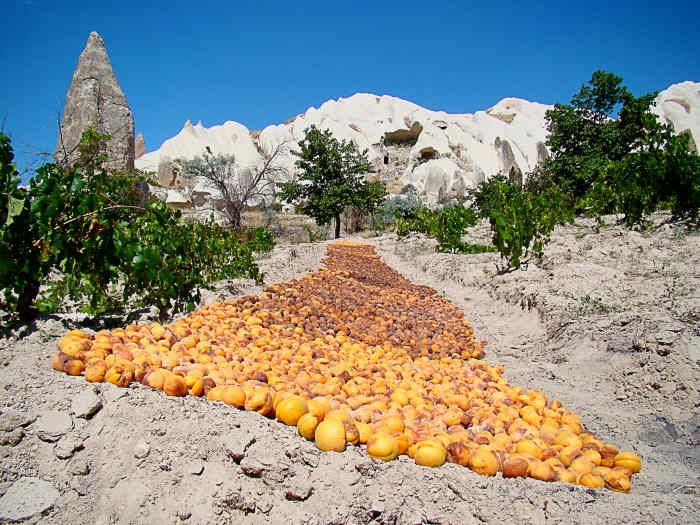
Apricots drying in the sun in Cappadocia, Turkey
Bjorn Christian Torrissen, via Wikimedia Commons, CC BY-SA 3.0 License
Uses of the Pits and Kernels
The ground pits of apricots are used to make exfoliating scrubs for skin. The seeds inside the pits look similar to almonds. Both sweet and bitter apricot kernels are ground and added to food for flavour. An oil is extracted from them for food or cosmetic use or for use in massage. The kernels are sometimes used instead of almonds in marzipan. Marzipan that is made from apricot or peach kernels instead of almonds is often referred to as persipan.
Bitter Apricot Kernels and Cyanide Poisoning
Sweet apricot kernels contain some amygdalin, but the seeds from the bitter fruits contain a much higher level of the chemical. In our digestive tract, enzymes convert amygdalin to hydrogen cyanide, which is poisonous. Our body can remove cyanide if only a small amount is present, but not if it's present at a high level.
Health Canada (a government organization) says that the kernels of sweet apricots are safe, assuming they're not eaten in huge quantities. They recommend that children don't eat bitter apricot kernels at all, however, and that adults limit their intake to no more than three seeds a day. They also say that the kernels should be ground and mixed with other food instead of being eaten on their own. I've found one scientific journal reference (listed in the "References" section below) which supports the idea that sweet apricot kernels contain much less amygdalin than ones from bitter fruits and are therefore safer.
The Food Standards Agency, which is part of the UK government, makes different recommendations from Health Canada. The agency says that because it's impossible to distinguish between sweet and bitter apricot kernels visually, they should be treated in the same way and avoided. It says that as little as half a large kernel (or as few as three small ones, according to the European Food Safety Authority) could be dangerous for an adult. However, it says that persipan paste is safe because the product has been treated by heat or another processing method that prevents harm from cyanide.
Kernels, Amygdalin, Laetrile, and Cancer
Some people promote the use of bitter apricot kernels (or bitter almond kernels, which also contain amygdalin) for cancer treatment. Amygdalin is broken down in stages by enzymes in the intestine. In the last stage, hydrogen cyanide and benzaldehyde are made. Promoters claim that the cyanide or the benzaldehyde kill cancer cells. They often recommend the ingestion of many bitter apricot kernels every day. This huge intake of amygdalin produces a large amount of cyanide in the gastrointestinal tract, which is dangerous.
Laetrile is a semi-synthetic chemical derived from amygdalin. It's sometimes referred to as vitamin B17, although it's not a vitamin. It's also referred to as amygdalin, thought it's not identical to this chemical. Like amygdalin, however, laetrile produces cyanide and benzaldehyde in the body. Some people claim that laetrile fights cancer. Health agencies say that the chemical is not only ineffective at treating cancer but is also dangerous. Researchers say that even laetrile that is injected instead of ingested is ineffective, though it may produce fewer side effects than the ingested form. The chemical is currently banned in the United States.
Delicious Fruit Throughout the Year
Apricots are useful fruits that are packed with nutrition and flavour. The flesh of the sweet variety is delicious in summer. At other times of the year, canned and dried fruits are good substitutes for the fresh ones.
The fruit with the pits removed can be a great addition to the diet. A person should be very careful if they want to use the kernels inside the pits, however. There could be dangerous consequences, especially if bitter apricot kernels are eaten.
It's probably best that children avoid both types of kernels. If an adult decides to eat them, he or she should be certain that they come from sweet fruit and should avoid eating an excessive number. If they're tempted to eat kernels from bitter apricots (even in small quantities), they should seek their doctor's advice.
References
- Nutrients in apricots from SELF Nutrition Data (The site obtains its data from the USDA, or United States Department of Agriculture.)
- Information about carotenoids (including beta-carotene) from the Linus Pauling Institute at Oregon State University
- Antioxidant facts from MedlinePlus, National Institutes of Health
- Dietary fibre information from the Mayo Clinic
- Facts about cyanide in apricot kernels from Health Canada
- Amygdalin in bitter and sweet seeds of apricots (abstract) from the Toxicological & Environmental Chemistry Journal, Taylor & Francis
- Kernel advice from the Food Standards Agency in the UK
- Apricot kernels pose risk of cyanide poisoning from the European Food Safety Authority (EFSA)
- Laetrile information from the National Cancer Institute
- Facts about laetrile from Cancer Research UK
This content is accurate and true to the best of the author’s knowledge and does not substitute for diagnosis, prognosis, treatment, prescription, and/or dietary advice from a licensed health professional. Drugs, supplements, and natural remedies may have dangerous side effects. If pregnant or nursing, consult with a qualified provider on an individual basis. Seek immediate help if you are experiencing a medical emergency.
© 2012 Linda Crampton
Comments
Linda Crampton (author) from British Columbia, Canada on June 12, 2020:
Thanks for sharing your experience with apricots, Liza. I enjoy eating whole apricots, but I've never eaten ones that have just been picked. That would be a lovely treat!
It is good when potential cancer treatments are investigated, though in this case the apricot chemical is harmful instead of helpful.
Liza from USA on June 12, 2020:
My dad loves apricot. However, we don't grow apricot in Malaysia. We usually bought the canned apricot. When I move to the US, I've got to taste the fresh apricot because my mother-in-law has an apricot tree in her backyard. Oh my gosh, it tasted so much better. By the way, it's always good to know people researched for potential cancer treatment from this fruit.
Linda Crampton (author) from British Columbia, Canada on July 23, 2012:
Thank you, RTalloni. I can understand why you love apricots - they do have a lovely taste!
RTalloni on July 23, 2012:
Very interesting read packed with helpful information on apricots. We love this little fruit and it's good to learn more about them.
Linda Crampton (author) from British Columbia, Canada on July 22, 2012:
Thank you for the comment and the votes, Peggy! It's nice to find fresh apricots in the stores in summer, but I enjoy eating other forms of the fruit too. I think that sweet apricots are delicious when they're eaten on their own or when they're added to many types of food.
Peggy Woods from Houston, Texas on July 22, 2012:
I did not even know that there was such a thing as bitter apricots. I love the fruit of the sweet ones when they are fresh and in the stores. Canned and dried apricots are also good. I had no idea that people ate the kernals or that they were used for various purposes. Good advice in this hub Alicia. Up votes!
Linda Crampton (author) from British Columbia, Canada on July 21, 2012:
Thank you for the comment, teaches. It is easy to eat too many dried apricots, since they are so delicious! I have to be very careful when I'm eating them.
Dianna Mendez on July 21, 2012:
Now I want some apricots! I buy the dried variety for snack purposes and will have to watch the intake, forgot they do add up in calories. Thanks for the lovely reminder of how good they really are.
Linda Crampton (author) from British Columbia, Canada on July 20, 2012:
Hi, drbj. I feel the same way. I don't avoid eating food that contains the ground seeds of the sweet apricot, but I don't eat the seeds when I eat the fruit. Thanks for the visit and comment.
drbj and sherry from south Florida on July 20, 2012:
It's interesting, Alicia, how a fruit as sweet as apricots can have such a tremendously bitter seed. Thanks for this revealing information about the benefits of apricots. I avoid eating the seed though since cyanide in any quantity is not my cup of tea.
Linda Crampton (author) from British Columbia, Canada on July 20, 2012:
Thank you, Tom. As always, I appreciate your visit, comment and votes very much!
Thomas Silvia from Massachusetts on July 20, 2012:
Hi my friend this is all great and interesting information on apricots and some of it i did not know before, well done !
Vote up and more !!!
Linda Crampton (author) from British Columbia, Canada on July 20, 2012:
Hi, Maren. Yes, I love eating the fruit of the apricot, but I don't eat the seeds. I want to absorb as few toxins as possible!
Maren Elizabeth Morgan from Pennsylvania on July 20, 2012:
I love eating apricots - sounds like it and the apple seed are equally dangerous to us humans, though.
Linda Crampton (author) from British Columbia, Canada on July 20, 2012:
Thank you for the comment, the rating and the tweet, Om! I appreciate them all.
Om Paramapoonya on July 20, 2012:
Lots of fascinating info here! I had never heard about the uses of apricot kernels before. Thanks for sharing this. Rated up and tweeted!
Linda Crampton (author) from British Columbia, Canada on July 20, 2012:
Thanks for the comment and the information, alipuckett. I've never eaten bitter apricot kernels, but their name doesn't sound very attractive!
Linda Crampton (author) from British Columbia, Canada on July 20, 2012:
Thank you very much for the comment, Bill. Apricots are worth trying. I enjoy eating all forms of the fruit, but my favorite is the dry fruit - I love its flavor!
alipuckett on July 20, 2012:
I read the reports about apricot seeds being beneficial for killing cancer cells. I picked up bag of kernels a few years ago. They tasted awful!
Bill Holland from Olympia, WA on July 20, 2012:
I don't eat these.....now what do I do? :)
Interesting hub; I just might try them all because of your wonderful and informative hub.

